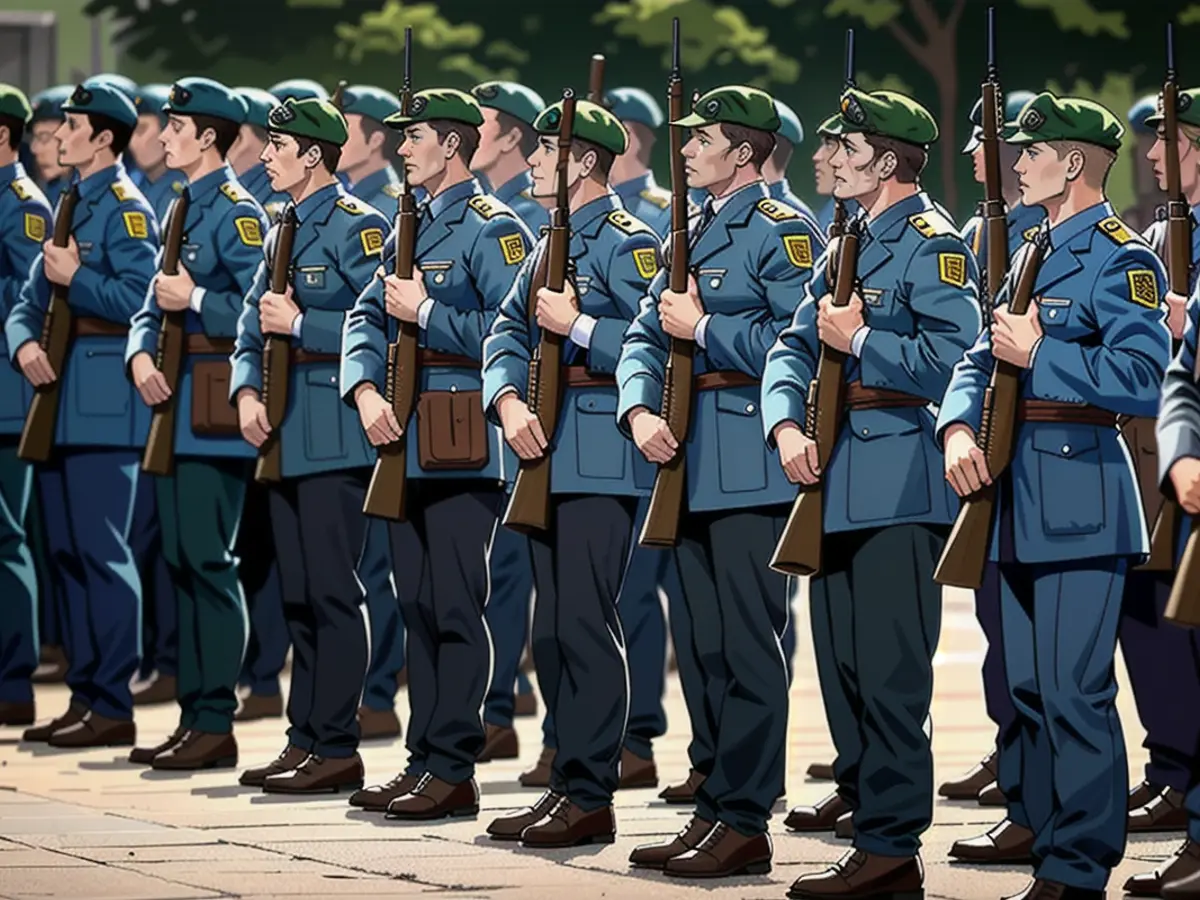German fiscal policy poses a threat to Europe's stability.
A struggle exists within the German administration regarding an increased budget for the Bundeswehr. Economic experts claim the traffic light coalition poses a potential danger to Europe's security due to inappropriate military equipment for the troops. IfW indicates that a three percent, rather than a two percent, financial output is required.
The Kiel Institute for the World Economy (IfW) has urged the German government to allocate more funds toward defense. If necessary, Germany might need to utilize additional debt, as stated by IfW President Moritz Schularick in an interview with the "Süddeutsche Zeitung." Schularick stated, "German fiscal policy is hazardous for Europe's security." To cover sizeable deficiencies in the nation's defense abilities, the Federal Republic would need to set aside nearly three percent of its economic output for defense in the foreseeable future.
To achieve this goal, the government could potentially halt the debt brake or institute a new special fund. Schularick addressed Finance Minister Christian Lindner, saying, "Anyone who refuses new loans for dogmatic reasons is putting party ahead of country." While the SPD, Greens, and FDP all have contrasting ideologies about fiscal policy, the FDP president advocates for a severe austerity plan.
Defense Minister Boris Pistorius requested additional military funds for Ukraine in the current budget, with a proposed amount of 3.8 billion euros. The Ministry of Finance has given its blessings. "Germany must not overlook strengthening the defense of Ukraine. If feasible, more weapons could be provided this year," the newspaper claimed, highlighting ministry insights. The Bundeswehr's budget for the upcoming fiscal year has yet to be determined. Formerly, Pistorius sought an additional ten billion euros per year but was unsuccessful. Recent hints depict tensions between Pistorius and Chancellor Olaf Scholz about the defense budget.
Europe's lack of self-defense
Europe has failed to invest in its security, according to IfW's chief. Europe's protection of Ukraine against Russia is problematic without American assistance. Schularick emphasized that "given the unpredictable USA, Europe ought to be self-sufficient in protecting itself in the near future." Enhanced defense spending would spur growth, similar to tax credits for companies encouraging investment.
Additionally, the economist highlighted a different European security issue. EU nations have been importing 40 times more e-cars from China than the United States, who recently imposed retaliatory tariffs. Schularick suspects that the imports will keep increasing. The European Union should inspect China's subsidies and respond with punitive tariffs, if required. German manufacturing companies face a China shock, Schularick cautioned the SZ.
Read also:
- Year of climate records: extreme is the new normal
- Precautionary arrests show Islamist terror threat
- UN vote urges Israel to ceasefire
- SPD rules out budget resolution before the end of the year
The Kiel Institute for the World Economy (IfW) President Moritz Schularick advocates for Germany to increase its defense budget, stating that German fiscal policy could pose a threat to Europe's security. In response to the Institute's call, Finance Minister Christian Lindner might need to consider using additional debt or suspending the debt brake.
Furthermore, Defense Minister Boris Pistorius and Chancellor Olaf Scholz have shown tensions regarding the defense budget, with Pistorius requesting more funds for Ukraine's defense and Scholz's potential opposition. IfW's Scholarick has criticized the Traffic Light coalition, citing the potential danger it poses to Europe's security due to inadequate military equipment.
Source: www.ntv.de








